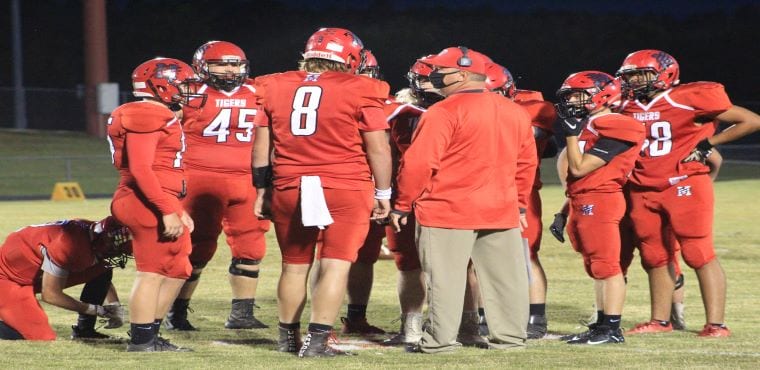The saying “You win some, you lose some” is a massively used motto in this thing we call life. No, it doesn’t make the pain of losing sting any less. But it’s a great example of when you’re knocked down, you pick yourself up, brush yourself off, and continue pushing forward. Sometimes though, it’s hard for us to see the forest for the trees. We get so caught up in the minute details of the problem that we can’t see the bigger picture. This football season, the Mansfield Sr High Tigers finished with an overall record of 1-9. For some, those numbers were very upsetting considering the Tigers were 7-4 last season and 8-4 in 2018. But what about before that? In 2012, 2013, 2015, and 2016, Mansfield was 2-5 in conference play. And in 2014 and 2017, they were 1-6 in conference.
The thing about life and situations in it is that it’s not always sunshine and unicorn kisses. It gets downright dirty at times. But when you love and support something, it’s done for better or worse. School sports programs included. Yes, winning is the best feeling on earth. But we all know that what goes up must come down. We also know that things aren’t bad forever. It’s just a little hiccup. A slight bump in the road. We just buckle down and work harder for the next time. I had the pleasure of sitting down with Mansfield Tigers’ head coach, Tim Cothran, to pick his brain about what it’s like to be a coach during the good times and the bad.
What is it about coaching that keeps you coming back day after day, no matter how hard things get? “Optimism. Things are never as good or as bad as they seem. You look for the bright spots on your team like a player getting better. Everyone on this team I have watched and seen them develop since their careers started. For some, the “lights never come on”, they never sell out, they never work hard and they eventually fade out. But the ones that are intent on getting better, learn to do things correctly, and then get better. In those transition times, you have to measure success by things other than wins or numbers.”
“I know the fans sometimes don’t like this, but these are kids, teenagers, the most unpredictable species on the planet. And just like their parents, guardians, siblings, pastors, youth pastors, counselors, we also genuinely want these young people to be the best they can be. It takes a village to raise a child, and so therefore we are just trying our best to do our part. Just because a team loses, does not mean they didn’t do what they were supposed to. So bottom line, what keeps us coming back and withstanding the storms of naysayers and negativity, is that unlike everyone else, we spend a lot of time with these athletes. We have as much or more invested than most in their young lives and we believe in them and their ability to overcome and get better. Long term winning is a difficult and gruesome task, and it takes long term commitment. There is no flash in the pan answers. We are teaching slow-roasted lessons in a microwave age.”
What are the main factors as to why a team would have a losing season? “Youth, inexperience, not being committed, missing practices, and things that are more important than football.” How do you and your coaches stay positive and keep things together when it’s hard to make things happen on the field? “We continue to coach up and we continue to coach forward. When things don’t happen the way they should, it is easy to get down and pass blame. It stinks for the seniors that we are in such a season. But you love em, coach em up and try to motivate the team to fight for them. Then you turn around and use the lessons learned this year for the coming years. Winning is a slow process. We can’t go out and sign million dollar players and we can’t recruit players, so we play what we have and coach them up. Comparing this group of players to any other group of players is like comparing apples to oranges. It just doesn’t work. We don’t like to lose as much as the next person. I’m a horrible loser. But if we take it out on our players, team, school, community, each other, etc, what are we teaching? So we teach our kids personal accountability. If we mess up, we own it and we move on.”
What does it take to make a team successful? “Commitment, commitment, commitment. And from everyone! School, students, athletes, teachers, coaches, admin, community. Most of us are like chickens when it comes to commitment for breakfast. We will gladly contribute the occasional egg to the cause. But that is not what we need. We need a pig’s commitment. He gives his life for the sausage, bacon, and ham. We need to consistently be pigs in our commitment.”
There’s always the “unseen” factors that aren’t always taken into context. Are there any in the program you’d like to mention and explain? “I am not in the excuse-making business, but the biggest unseen factor this season was Covid. If this had happened the prior year, it would not have affected an older senior-laden group to the extent that it affected our young players. Last year we graduated 14 seniors, most of which started or played significant minutes in their lifetime. We got no developmental time with our new young faces through our spring practice and our camp times over the summer. I find it highly unlikely that any other school our size had this same problem. Couple that with the fact that we had an attendance issue with practice this year which put us even further behind teams with more experience than us. We only had 3-4 players with significant minutes over the last couple of years and you can tell who they are by watching them on Friday night.”







